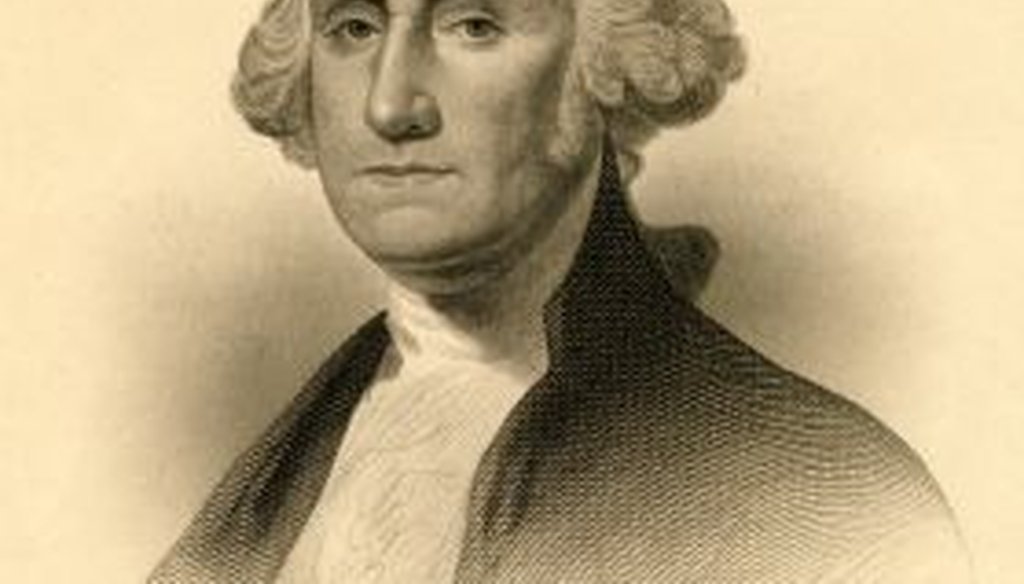Stand up for the facts!
Our only agenda is to publish the truth so you can be an informed participant in democracy.
We need your help.
I would like to contribute

What do "George Washington's Rules of Civility" have to say to today's generation of politicians?
Editor's note: In honor of President's Day, we're taking a slight diversion from fact-checking to see how George Washington would regard our modern-day discourse. We expect Washington would have fared well on the Truth-O-Meter, even if the tale of young George chopping down the cherry tree -- the one in which he supposedly said "I cannot tell a lie" -- is almost certainly fictional.
***
A few months ago, as I was wandering the restored colonial city of Williamsburg, Va., I discovered a gem of a book: George Washington’s Rules of Civility.
Since I work for a news outlet that cares about the nation’s political discourse, I was curious to see what the Founding Father might have to say to those who work in his namesake city more than two centuries later.
The 110 rules of civility in the leatherbound volume actually predate Washington’s presidency by more than four decades. They originated in a notebook the 13-year-old George assembled in 1745. At the time, it was common for students in the colonies to copy lists of social rules and morals. The idea was to learn "how to conduct himself in the fashion of a respectable British citizen," writes the editor of the version I stumbled upon, historian John T. Phillips II. (Since Washington’s writings predated copyright rules, many other versions of the volume are available as well.)
The rules are largely descended from a French manuscript dating from 1595, titled Good Manners in Conversation Among Men, which descended from an Italian book published by a Catholic cleric in 1552.
A sampling of Washington's lessons on civility
• In the presence of others sing not to yourself with a humming noise; nor drum with your fingers or feet.
• If you cough, sneeze, sigh, or yawn, do it not loud, but privately; and speak not in your yawning, but put your handkerchief or hand before your face and turn aside.
• Put not off your cloth(e)s in the presence of others, nor go out of your chamber half dressed.
• Wear not your clothes foul, ripped or dusty, but see to it that they be brushed once every day at least; and take heed that you approach not to any uncleanness.
• If you soak bread in the sauce, let it be no more than what you put in your mouth at one time; and blow not on your broth at the table, but stay until it cools of itself.
• Put not another bit into your mouth ‘til the former be swallowed. Let not your morsels be too big for the jowls.
A surprising number of Washington’s rules resonate in the polarized politics of our own time
• Show not yourself glad at the misfortune of another, though he were your enemy.
• Mock not, nor jest at anything of importance. Break no jests that are sharp and biting, and if you deliver anything witty and pleasant, abstain from laughing thereat yourself.
• Associate yourself with men of good quality if you esteem your own reputation. For ‘tis better to be alone than in bad company.
• Let your conversation be without malice or envy, for ‘tis a sign of a tractable and commendable nature. And in all causes of passion admit reason to govern.
• Speak not injurious words, neither in jest nor earnest. Scoff at no one, although they give occasion.
And most eloquently
• Labour to keep alive in your breast that little spark of celestial fire called conscience.
Our favorite here at PolitiFact, however, is this one
• Undertake not what you cannot perform. Be careful to keep your promises.
Our Sources
See original story





















































